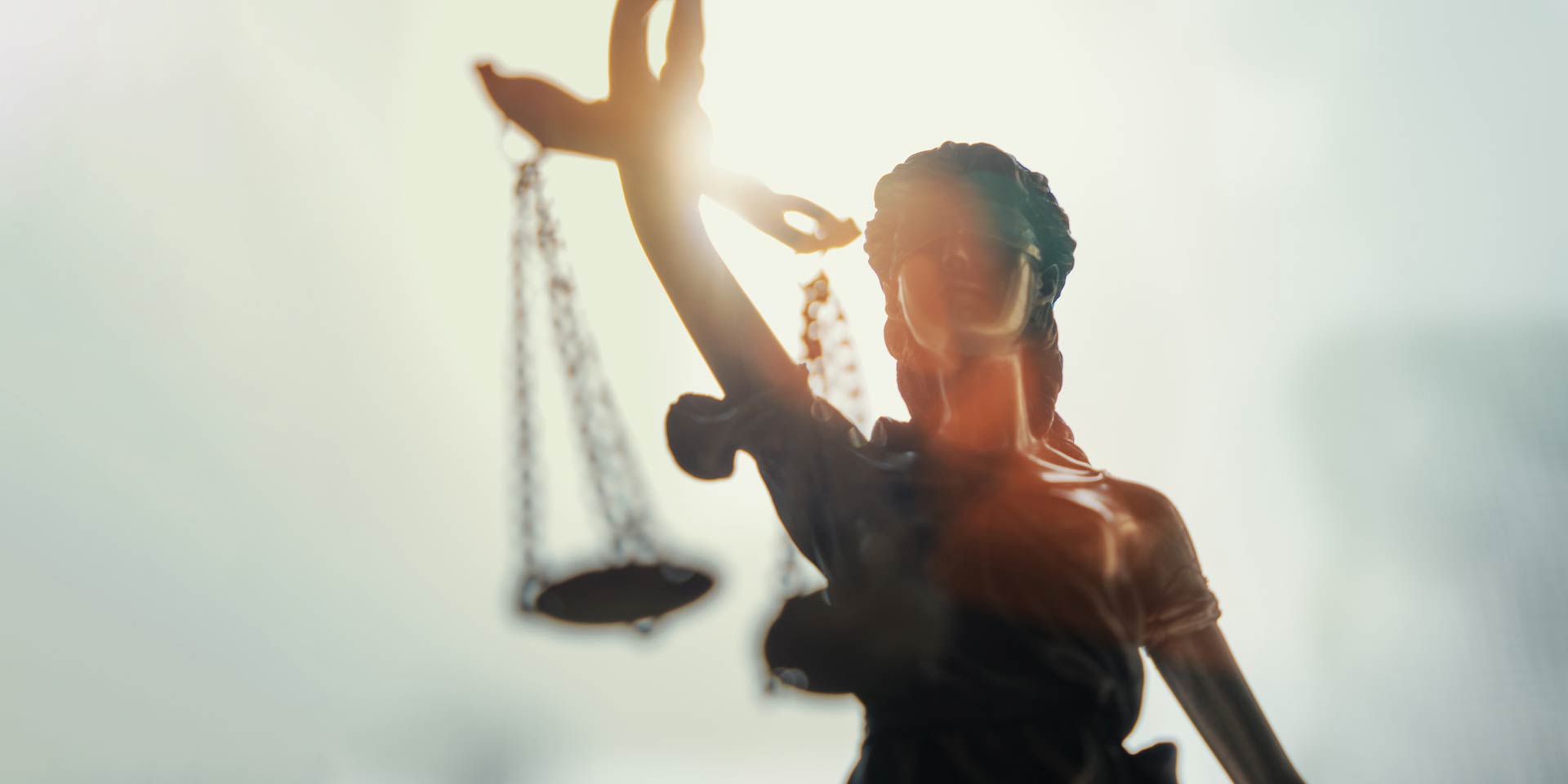“No doubt equality of goods is just; but, being unable to cause might to obey justice, men have made it just to obey might. Unable to strengthen justice, they have justified might; so that the just and the strong should unite, and there should be peace, which is the sovereign good….” (Blaise Pascal, Thoughts)
What philosophers and sociologists call the “illusion of progress” is a very convenient temptation to believe that just because we have advanced in age, in history, and in prosperity, and because we have gained some life experience, it is presumed, implicitly, that we have also evolved. However, this illusion is most keenly felt in the realm of morality. As philosopher Erich Fromm warned in the 20th century, common sense does not progress.[1] So, we are not better than previous generations just because we are fresher in the world, regardless of how much technology has progressed, how much the sciences have evolved, how the standard of living has risen, or how life expectancy and even the intelligence quotient of individuals, have increased.
To understand the trap of the illusion of progress in morality, we can engage in a simple exercise of imagination. Let’s mentally rewind 25 years and recall how “art” movies were broadcast and watched on late night public television. Then, let’s seriously consider how we would have reacted if, in the opening announcement, a neutral, dry voice had specified that a movie containing “scenes of violence, scenes with sexual connotations, nudity, and coarse language” was coming up. It’s a sign of current moral regression to realise that the announcement would have caused us emotional discomfort back then; a cringe or a revolt at what is packaged as an artistic movie, when it has nothing to do with art, but with the psychopathological and schematized creation of screenwriters and directors who measure their professional achievements solely by box office receipts. If today we become indifferent to this alarming stage of moral concessions made by the Communications Commission, it is again an indication that we have regressed morally as a society.
Many other indicators of collective moral regression are encountered at every turn: sensational news about scandalous deeds make the immorality of their content seem familiar, natural; celebrities whom the masses admire are often successful, wealthy, perhaps proficient in a field, but with questionable morality. A while back, the world witnessed the scandal of top footballers who were accused of tax evasion and even convicted. And the list of examples can continue, in any domain of public life.
All these illustrate a downward trend in morals, in those patterns of behaviour tacitly established over time by members of a community, precisely to balance interpersonal relationships. The complex way in which morals manifest themselves led the founder of sociology as a science, Émile Durkheim, to initially conceive his discipline as a “science of morals” in the 19th century. A century later, another French thinker, Edgar Morin, noted that “we are at the beginnings of knowledge”, that “we have not reached the moment of a possible fulfillment of historical societies, but only the beginnings of an authentic social hypercomplexity.”[2] Therefore, moral progress seems the most distant horizon of the world we live in.
Given these disappointing realities, we may wonder whether people should still strive to improve morals as desirable habits and attitudes in the community, or whether they should simply follow their natural behavioural tendencies, as long as they do not violate legal norms. In other words, let us ask ourselves: why would people want to be moral?
Possible motivations
The basest motivation—but one whose reality we cannot doubt when we look at so many cases that even fall under the jurisdiction of the law—is that the right context was not present to commit an immoral act. Therefore, for some people, it is a matter of circumstance and convenience whether to remain within morality or not.
Another motivation stems from conformity: being moral out of the convenience of peaceful coexistence with others or from realising that adhering to norms of good behaviour and politeness shields us from complications. Moreover, even at the cost of effort and hypocrisy, it brings us advantages. For example, a candidate for a well-paid job may choose, out of conformity, to feign respect for others and be helpful.
A third motivation finally brings conscience to the forefront. Moral conscience is that deliberative inner authority inherent to humans, which shows them the distinction between right and wrong, indicates which values and attitudes to internalise, whether an action is obligatory or reprehensible, and whether it should be undertaken or rejected.[3]
Hypothetically, any mature, mentally healthy human being in a lucid state should be able to exercise their moral conscience. And when, in a community, individual moral consciences are found in the same values, beliefs, ideals, and principles, they somewhat homogeneously form a collective moral conscience. Extrapolating, we can identify, in broad strokes, moral consciences of societies, ethnicities, nations, and regions—even of the era or civilization in which we live.
Now, if we weigh the strength of the three motivations for morality that we have mentioned, it is easy to see that the first offers no guarantee; it is more of a provisional state where immoral thinking prepares the way for immoral action.
Regarding the second motivation, conformity, we can say that it doesn’t hold up for long, as it diminishes when situations arise where it is no longer convenient to adhere to moral norms, and it can even become painful, challenging, or disadvantageous.
Finally, concerning moral conscience, we may wonder how much it withstands constraints. As long as circumstances are favourable, as long as courage, sacrifice, readiness to lose, or inflexibility are not put to the test, anyone can consider themselves a moral person, but without truly knowing themselves. There are countless cases recorded in history, literature, or in the world of film, of heroes who turned out to be different than they seemed to others, or even to themselves, either for better or for worse. From Judas Iscariot to Raskolnikov (Dostoevsky’s character) to Brutus, the gallery of those who have betrayed, become criminals, disappointed, and degraded as human beings is endless. On the other hand, from heroes like the young shepherd David or the slave Spartacus, to Joan of Arc or Desmond Doss, unfolds a gallery of those who have risen above their condition, powers, and initial advantages, have been tempered in battle, saved lives, achieved victories, and surpassed themselves.
However, the problem arises when we realise that ordinary people, in most cases, do not honourably face moral challenges and constraints and are tempted to compromise: they seek the easier path, arm themselves with justifications for violating moral norms, abandon principles for the sake of gain or out of fear of a threat, then they end up stifling the voice of conscience to feel at peace with themselves. Gradual brutishness intervenes, sometimes unnoticed. The case of that illegalist atheist communist, Gorun, is staggering, as witnessed by Richard Wurmbrand in his book of detention,[4] where he notes that Gorun, from a dignified hero who maintained the rectitude and humanism of his beliefs at the cost of freedom, who argued that he did not need a crutch of religious faith to withstand persecutions, turned into a monster, torturing his cellmates, including the doctor who saved him from death by caring for his wounds.
Here are the limits of the human conscience that attempts to rely solely on internal resources in the battle against evil. And the fact that nobody truly knows themselves, in all the horror of which they are capable in extreme conditions, is illustrated very clearly by several accounts in the Old Testament. The prophet Jeremiah laments the disasters encountered after the Babylonian siege of Jerusalem: “With their own hands compassionate women have cooked their own children, who became their food when my people were destroyed” (Lamentations 4:10). Astonishingly, this pathetic state to which loving mothers descend, beyond their ability to imagine, is foreseen and prophesied by God long beforehand. Here’s what Moses warned: “The most gentle and sensitive woman among you (…) will begrudge the husband she loves and her own son or daughter the afterbirth from her womb and the children she bears. For in her dire need she intends to eat them secretly because of the suffering your enemy will inflict on you during the siege of your cities” (Deuteronomy 28:56-57).
The limitations of human conscience
The ability to discern between good and evil is part of the rational thinking with which humans are endowed, unlike animals. Thus, they can exercise rational thinking about the surrounding world, about others, and about themselves. The question “What should I do?” reflects the primary concern of their moral conscience, and whether conscious or acting reflexively, it cannot be absent from someone’s life as it is found in the broader perspective of the meaning anyone attributes to their life.
So, to feel they are following the purpose of life and to have a sense of achievement, humans must listen to the voice of their moral conscience. The problem arises if they realise that they themselves are not enough to act wisely, as their power of knowledge of the world and themselves is limited. The Apostle Paul distinguishes between “worldly wisdom” and divine grace (2 Corinthians 1:12). Similarly, Ellen White describes conscience as “the voice of God heard amidst the conflict of human passions.”[5]
If one does not recognize the need for the all-encompassing perspective of Divinity, they may opt for a stoic vision, which in my opinion, is the only one that preserves human dignity. It is akin, in contemporary terms, to the one embraced by Viktor Frankl, the renowned neurologist and philosopher and a survivor of three Nazi concentration camps. He was dubbed the “prophet of the meaning of life”[6] for his impressive advocacy of humanity’s supreme and inalienable freedom to preserve, in its moral conscience, a sense ascribed to life, no matter how cruel it may be. He says: “We who lived in concentration camps can remember the men who walked through the huts comforting others, giving away their last piece of bread. They may have been few in number, but they offer sufficient proof that everything can be taken from a man but one thing: the last of the human freedoms—to choose one’s attitude in any given set of circumstances, to choose one’s own way.”[7]
What stands out in this lofty philosophy of life, as with those of the ancient Stoics (Epictetus, Marcus Aurelius, etc.), is its focus on human freedom, but not necessarily on the capacity to utilise it. Indeed, there is the heroic path of using all human means and powers to confront evil. However, as noted with psychological finesse by the hermit philosopher Blaise Pascal, this heroic path is actually marked by egocentrism, by the arrogance of the self: “The Platonists, and even Epictetus and his followers, believe that God alone is worthy to be loved and admired. Nevertheless, they wanted to be loved and admired by men. They do not know their own weakness.”[8]
Furthermore, in my opinion, the atheistic perspective that creates this heroic aura of a solitary and desperate struggle with evil fails to evade the problem of absurdity. If all there is is this life, here and now, and the challenges are terribly difficult, unbearable, then what’s the point of believing in a meaning of life and desiring it at any cost? Wouldn’t it be wiser to desire death instead? A person who becomes a cannibal in the tremendous trials of life is someone who desires to live at any cost. But, does he do so because he believes in the inalienable meaning of life, or precisely because he no longer believes in it, because instincts have taken over?
Blaise Pascal sheds light on this issue when he remarks: “It is certain, that the soul is either mortal or immortal. And it makes the utmost difference as to the conduct of life, which of these suppositions is the true one. Yet philosophers have formed their moral systems independently of this fact. What strange blindness!”[9]
What atheist thinkers elude in the problem of the meaning of life and the moral choices of man is that a religious perspective does not offer the faithful a convenient contract or a deception, but a power of faith and love. This “power from Above,” promised by the Saviour, represents the contribution of vitality and resilience that the human can only receive from the Divine, and in its absence, in his own strength, all his moral endeavour may seem like a vain agony.
The love of God and the longing for the transcendent world thus become the highest motivation for living a moral life. However, it’s not about a conceptual, cold, theological God, but about the “God of Abraham, God of Isaac, God of Jacob, not of the philosophers and the scholars…”. These are the words with which Pascal recorded his revelation, the theophany experienced on the night of November 23, 1654, in the seclusion of his monastery cell, words that were kept in devout secrecy until his death, sewn into the hem of his cassock. The theophany is the motivation for a moral life to the extent that it is both its source and its ultimate goal.



















